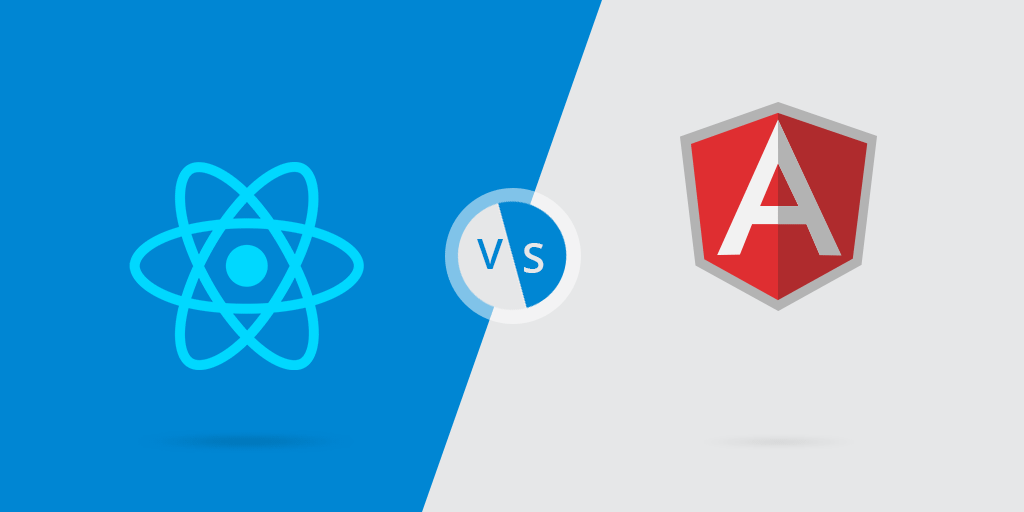
When it comes to front-end development, React and Angular are two of the most popular frameworks. Both have their own strengths and weaknesses, and choosing the right one for your project can be challenging. In this article, we'll compare React and Angular in various aspects to help you make an informed decision.
Overview
React is a JavaScript library developed by Facebook for building user interfaces. It is known for its simplicity, flexibility, and performance. React allows developers to build web applications using reusable components, which can manage their own state. The library follows a unidirectional data flow model, which enhances the predictability of the application state.
Angular, on the other hand, is a comprehensive framework developed by Google. It provides a full-fledged development environment and is known for its robustness and scalability. Angular includes a range of built-in tools and features such as form handling, HTTP client, and routing, making it an all-in-one solution for building web applications.
Performance
React is designed to optimize performance with its virtual DOM and efficient diffing algorithm. It updates only the parts of the DOM that have changed, making it very fast. React's use of a virtual DOM minimizes the number of direct manipulations to the actual DOM, which enhances performance.
Angular, while powerful, can be slower in comparison due to its use of a real DOM and two-way data binding, which can lead to more complex change detection processes. However, Angular's change detection mechanism is highly optimized and can be very efficient with proper use of OnPush change detection strategy and trackBy functions in ngFor loops.
Learning Curve
React has a relatively shallow learning curve. It focuses on one main concept: building component-based user interfaces. Developers need to learn JSX, a syntax extension for JavaScript that allows HTML to be written within JavaScript. Beyond that, React is straightforward, relying on JavaScript for most of its operations.
Angular, in contrast, has a steeper learning curve. It is a complete framework that requires knowledge of TypeScript, a statically typed superset of JavaScript. Additionally, developers need to understand concepts like dependency injection, decorators, and RxJS for reactive programming. The comprehensive nature of Angular can be overwhelming for beginners but offers a structured approach to building large applications.
Community and Ecosystem
Both React and Angular have large communities and rich ecosystems. React's ecosystem is very flexible, allowing developers to choose their own tools and libraries. There are many third-party libraries and tools available for React, giving developers the freedom to select the best options for their needs. Popular tools include Redux for state management, React Router for navigation, and Jest for testing.
Angular offers a more standardized environment with a comprehensive suite of tools out-of-the-box, including Angular CLI, RxJS, and Angular Universal for server-side rendering. The Angular CLI simplifies the development process by providing powerful commands for code generation, testing, and deployment. Angular's standardized approach can lead to more consistency across projects, which is beneficial for larger teams and enterprises.
Use Cases
React is often preferred for projects that require high performance and dynamic UIs, such as single-page applications (SPAs) and mobile apps. Its component-based architecture makes it ideal for building reusable UI components. Companies like Facebook, Instagram, and Airbnb use React for their user interfaces.
Angular is well-suited for enterprise-level applications that need a robust structure and scalability, like complex web apps and large-scale projects. Angular's comprehensive toolset and standardized approach make it a popular choice for large organizations. Examples of companies using Angular include Google, Microsoft, and IBM.
Conclusion
Choosing between React and Angular depends on your project requirements, team expertise, and personal preferences. React offers simplicity and performance, making it ideal for dynamic and performance-sensitive applications. It is a great choice for developers who prefer flexibility and a lightweight library that can be augmented with other tools as needed.
Angular provides a comprehensive solution with a structured approach, making it suitable for large-scale and enterprise-level applications. Its extensive feature set and built-in tools can significantly speed up development time for complex projects. Angular is a good fit for developers who appreciate an all-in-one framework with a consistent development experience.
Ultimately, both frameworks are excellent choices for modern web development, and your decision should be based on the specific needs of your project. Consider factors like the complexity of the application, team size, and long-term maintenance when making your choice.

Add your comment